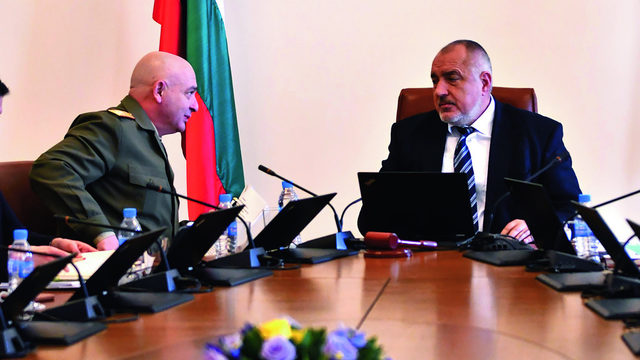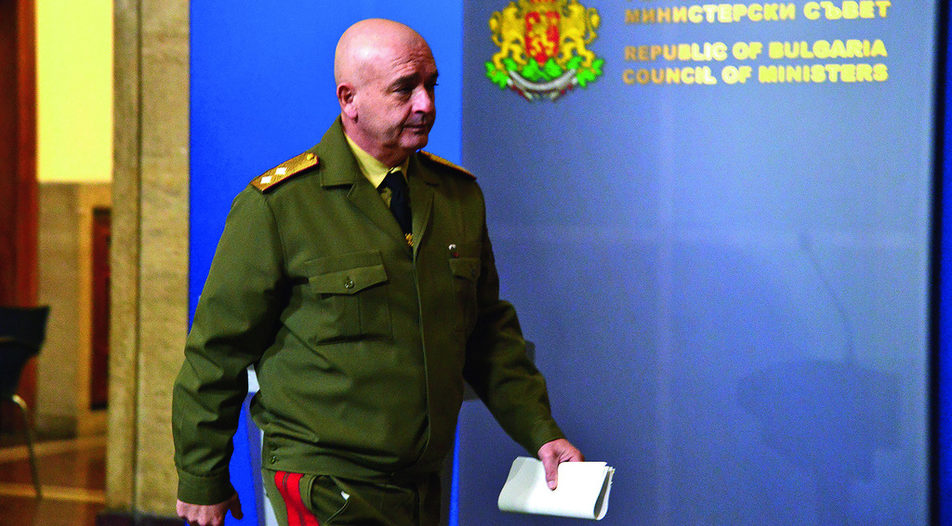| If there was one moment that convinced Bulgarians the COVID-19 crisis was no laughing matter, it was the somber March 14 speech of a uniformed Ventsislav Mutafchiysky |

Rising popularity = political carrier?
In a process that has turned into a pathology for Bulgarians, who seem to cling on to men in uniform at a time of crisis, the most natural question amidst the crisis was whether Mr Mutafchiysky would run for office and potentially become the next president. A position, ironically, currently occupied by another ex-general, the former chief of the air force Rumen Radev. "I am certain that he will receive an invitation to run for President, but whether he would take it is not yet known. He has not shown such ambitions so far, but I think it would be a logical move for GERB to invite him for the [presidential] race next autumn," Trend Agency sociologist Evelina Slavkova told Kanal 3 TV station in April. "The Bulgarian society likes generals; we've reached this conclusion long ago," she added.Mr Mutafchiysky would retreat from the pressroom, but not from the public arena. In the following months, he appeared several times along Mr Borissov at military events - first at the Saint George's day military parade and then at anti-ship missile tests on the Black Sea Coast. Meanwhile, he stopped making dramatic statements about the enormous risks to public health and the healthcare system posed by COVID-19 just as the number of newly identified cases skyrocketed in June, reaching 170-180 per day, compared to 60-70 at the "height" of the epidemic in April.
This sort of behaviour only serves to fuel the rumours of a potential political career, but at the same time risks jeopardizing the very efforts of the Crisis Staff to contain the spread of the virus from the beginning of the pandemic. Actually, this risk existed from the very start of the anti-pandemic efforts. Allowing Mr Mutafchiyski to become the face and voice of the tough lockdown measures, while technically powerless to enforce them, was a smart strategic move on behalf of Mr Borissov. This left him with the opportunity to take the credit for the potential success of the lockdown and place the head of the Crisis Staff as a buffer to absorb public anger in case of a failure.
The sombre tone of Mr Mutafchiyski contrasted well with the paternalistic and caring image of Mr Borissov, who was the "good cop" allowing churches to remain open over Easter and Pasha, calling for anti-pandemic measures to be scaled down, but restrained by the "bad cop" general.
Whether they were the fruit of a genuine clash of ideas of how to respond to the pandemic or calculated piece of theatre, the decision of Mr Mutafchiysky to remain part of it, in practice amounted to a concession that the COVID-19 pandemic is now a political, not an epidemiological crisis. A dangerous notion that might harm much more than the popular general's reputation and image.
| If there was one moment that convinced Bulgarians the COVID-19 crisis was no laughing matter, it was the somber March 14 speech of a uniformed Ventsislav Mutafchiysky |












